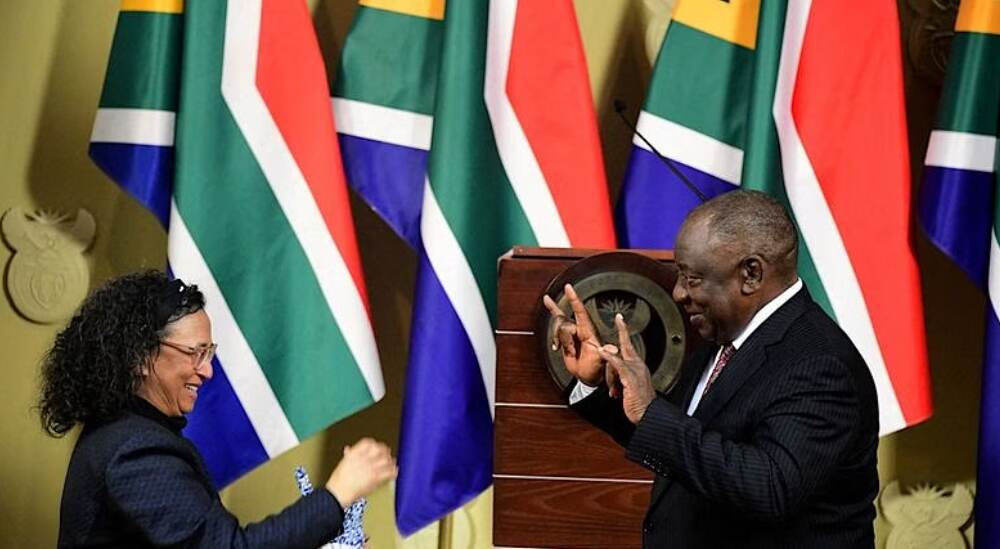South Africa Breaks Barriers: Sign Language Recognized as Official Language emancipating the Deaf Community
South Africa recognizes sign language as its 12th official language, providing better access to education and opportunities for the deaf community. This milestone is celebrated by 19-year-old Bongumusa Manana, who can now pursue his dreams of attending university. While there is still work to be done to improve access to education and services, this recognition marks a significant step towards inclusivity and equal rights for the deaf community.
Bongumusa Manana, a 19-year-old deaf student from Johannesburg, is celebrating a significant milestone for the deaf community in South Africa.
The government recently recognized sign language as the country's 12th official language, alongside English, isiZulu, Afrikaans, and others. This groundbreaking decision is seen as a huge breakthrough by Manana and his fellow deaf students, as it will provide them with better access to education and opportunities for success.
For Manana, the recognition of sign language means that he can now pursue his dreams of attending university. In the past, he struggled to communicate in everyday situations, such as going to a police station or taking a taxi. However, with sign language now being recognized as an official language, Manana believes that these barriers will be removed, allowing him to fully participate in society.
South Africa currently has about 40 deaf schools and only one fully accessible tertiary institution for deaf people. While the recognition of sign language is a significant step forward, there is still work to be done in improving access to education and services for the deaf community.
Andiswa Gebashe, a South African Sign Language activist, emphasizes the need for individuals who are equipped to develop the language further. Globally, sign language is recognized as an official language in only 41 countries, with just four of them in Africa. This highlights the importance of South Africa's decision to recognize and protect the rights of deaf individuals.
Wilma Newhoudt-Druchen, the country's only deaf member of parliament, acknowledges the long journey it took to achieve this milestone and expresses the deaf students' gratitude for the removal of barriers. Manana's dreams of attending university next year are now within reach, thanks to the recognition of sign language as an official language. "I can achieve anything," Manana confidently signs, knowing that he now has equal opportunities for success.
This recognition of sign language as an official language in South Africa not only promotes inclusivity but also signifies the government's commitment to protecting the rights of the deaf community. With continued efforts to improve access to education and services, South Africa is paving the way for a more inclusive and equal society for all.




